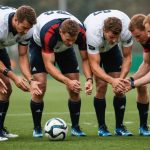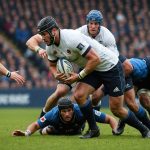As amateur athletes, many of you strive to enhance your performance through rigorous training and dedication. However, what often holds back progress is not the lack of effort in the gym but rather poor nutrition choices. Understanding the most common dietary mistakes can be the key to unlocking your full potential. In this article, we will delve into these mistakes and offer practical solutions to help you achieve your athletic goals.
Neglecting the Importance of a Well-Balanced Diet
A common pitfall among amateur athletes is the tendency to overlook the significance of a well-rounded diet. Many individuals focus solely on protein intake, thinking that more protein equates to better performance. While protein is crucial for muscle repair and growth, it is equally important to incorporate a diverse range of food groups into your meals.
Have you seen this : What are the potential benefits of meditation for athletes in high-pressure competitions?
By prioritizing only one nutrient, you risk deficiencies in other vital areas. A balanced diet should include ample servings of carbohydrates, healthy fats, vitamins, and minerals. Carbohydrates serve as the primary source of energy for high-intensity exercise, and neglecting them can lead to fatigue and decreased stamina. Similarly, healthy fats play a role in hormone regulation and joint health, which are essential for athletes.
To avoid this mistake, aim for a balanced plate that includes lean proteins, whole grains, fruits, vegetables, and healthy fats. For instance, consider meals that combine grilled chicken with quinoa, roasted vegetables, and a sprinkle of avocado. This way, you ensure that your body receives the necessary nutrients to fuel your workouts and help with recovery.
Also to discover : How can team dynamics affect performance in team sports, and what can be done to enhance it?
In summary, it is essential to recognize that optimal nutrition is not about obsessing over one nutrient but rather creating a harmonious blend of all food groups. By embracing a balanced diet, you can enhance your energy levels and overall performance.
Underestimating the Role of Hydration
Hydration is often an overlooked aspect of an athlete’s nutrition plan. Many amateur athletes do not drink enough water throughout the day, thinking they can compensate during or after workouts. This can lead to dehydration, which severely impacts performance.
When you engage in exercise, your body loses fluids through sweat. If these fluids are not replaced, you may experience fatigue, reduced strength, and even cramping. This is especially true on hotter days or during intense training sessions. To combat this, it is crucial to practice regular hydration habits. Start by drinking water consistently throughout the day, not just during your workouts.
A good rule of thumb is to drink at least half your body weight in ounces of water. For example, if you weigh 150 pounds, aim for at least 75 ounces of water daily. Additionally, consider incorporating electrolyte-rich beverages after intense workouts to replenish lost minerals.
Another common mistake is relying on sugary drinks or energy drinks for hydration. These beverages can lead to spikes in blood sugar and are often devoid of the nutrients your body actually needs post-workout. Instead, opt for natural sources like coconut water or homemade smoothies with fruits and vegetables.
In conclusion, maintaining adequate hydration is vital for maximizing your training results. By prioritizing water intake, you support your body’s need for energy and recovery, ultimately enhancing your overall performance.
Following Trendy Diets Without Personalization
In the age of social media and health trends, it is easy for amateur athletes to fall into the trap of following popular diets without considering their unique needs. While some diets may work wonders for certain individuals, they are not necessarily suitable for everyone.
For instance, low-carb diets have gained traction among fitness enthusiasts, but completely cutting out carbohydrates can hinder performance for those who engage in endurance sports. Similarly, others may attempt to adopt plant-based diets without fully understanding the necessary nutritional adjustments required to maintain adequate protein and caloric intake.
Before embarking on any diet, it is essential to assess your individual goals, body composition, and lifestyle. Consider consulting with a registered dietitian or sports nutritionist who can provide tailored advice based on your specific needs. They can help you understand how to structure your nutrition plan to align with your athletic objectives, whether that be losing body fat, building muscle, or improving overall performance.
Moreover, remember that moderation is key. Instead of completely eliminating certain food groups, focus on incorporating a variety of foods that support your training regimen. This might involve including whole grains for energy, lean proteins for muscle recovery, and healthy fats for overall health.
In summary, avoid the common mistake of blindly adopting trendy diets. Personalize your nutrition plan to fit your unique athletic pursuits and lifestyle. Doing so will help you optimize your progress and achieve your performance goals.
Neglecting Post-Workout Nutrition
Many amateur athletes do not prioritize post-workout nutrition, which is a significant mistake. After an intense training session, your body requires nutrients to recover, rebuild muscle, and replenish lost energy. Neglecting this critical time can hinder your performance and delay recovery.
The post-workout window is often referred to as the “anabolic window,” a time where your muscles are primed to absorb nutrients. A combination of protein and carbohydrates is essential during this period. The protein aids in muscle repair, while carbohydrates help restore glycogen levels, which are depleted during exercise.
For optimal recovery, aim to consume a meal or snack that includes both protein and carbohydrates within 30 minutes to two hours post-workout. A popular choice among many athletes is a protein shake mixed with a banana or a yogurt parfait topped with granola and berries. This combination provides the necessary nutrients to support recovery.
Another common oversight is underestimating the caloric needs post-exercise. Many athletes think they can simply skip meals after a workout, assuming they will not gain weight. However, your body needs adequate fuel to recover properly. If you consistently fail to replenish your energy stores, you may experience fatigue, muscle soreness, and impaired performance in future sessions.
To wrap up, prioritize your post-workout nutrition. Implement a recovery meal plan that includes both protein and carbohydrates to enhance your body’s ability to recover, repair, and grow stronger.
In conclusion, as amateur athletes, understanding and avoiding common dietary mistakes is crucial for maximizing performance. By prioritizing a well-balanced diet, maintaining proper hydration, personalizing your nutrition plan, and ensuring effective post-workout recovery, you can significantly enhance your training outcomes. Remember that nutrition is not just about fueling your body; it is a fundamental part of your athletic journey. Embrace these principles, and you will be well on your way to achieving your athletic goals.











